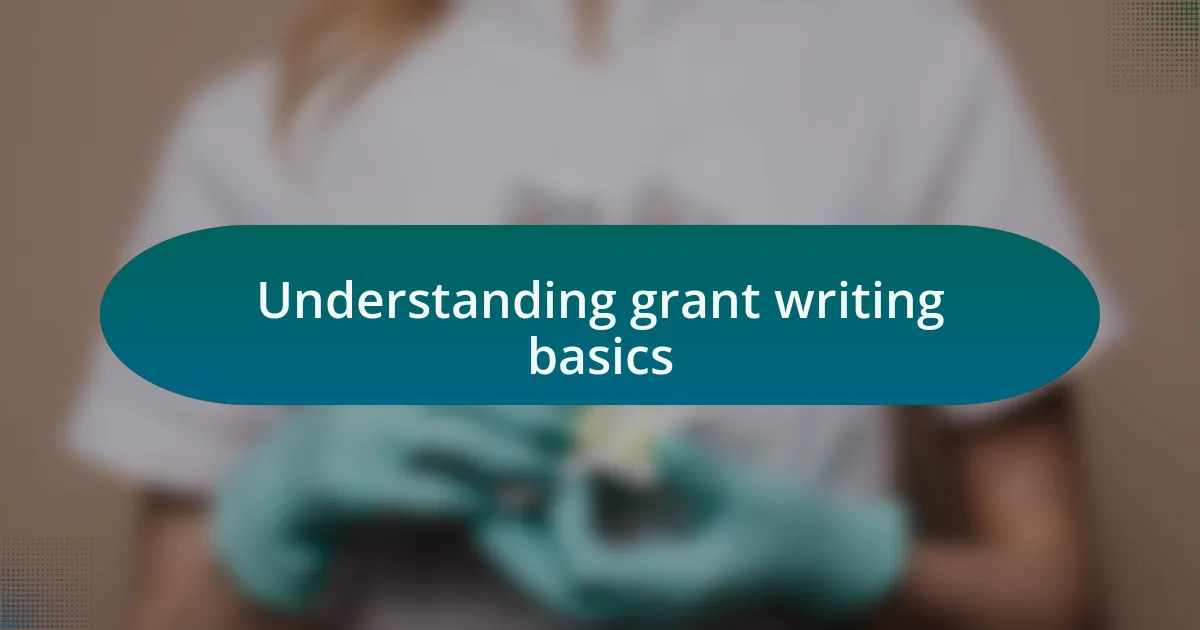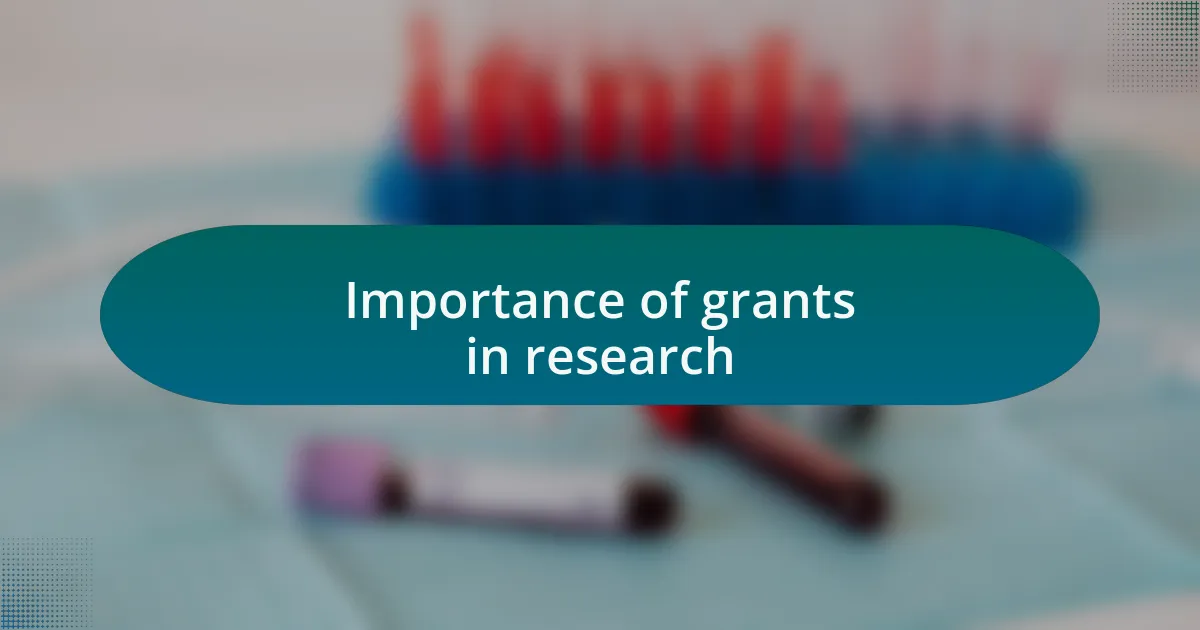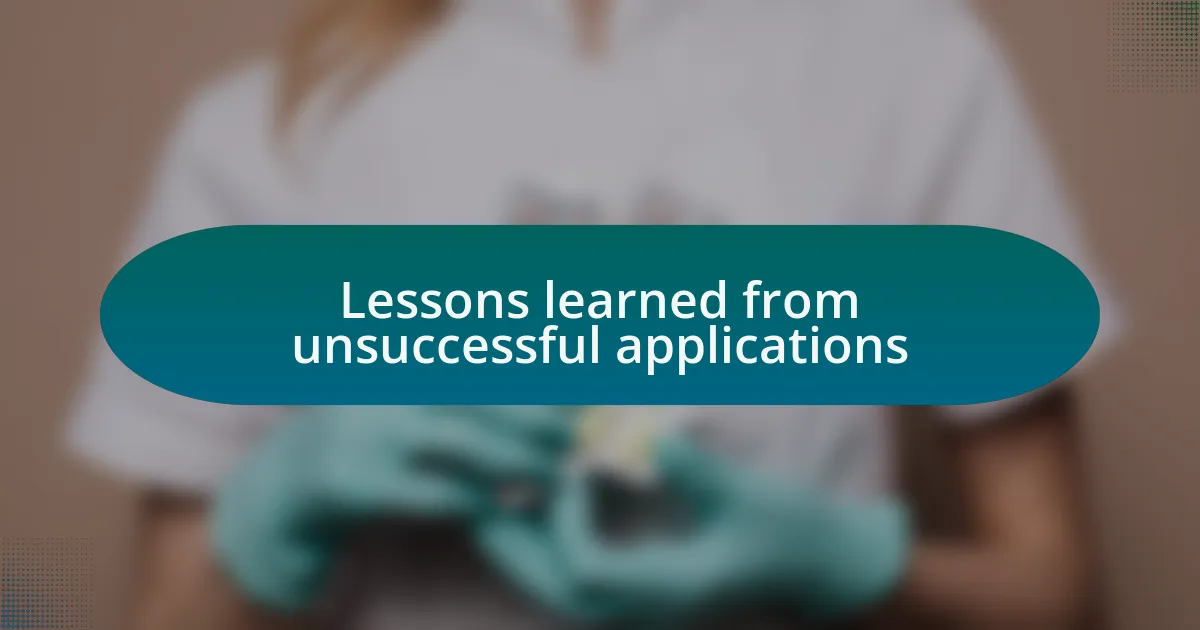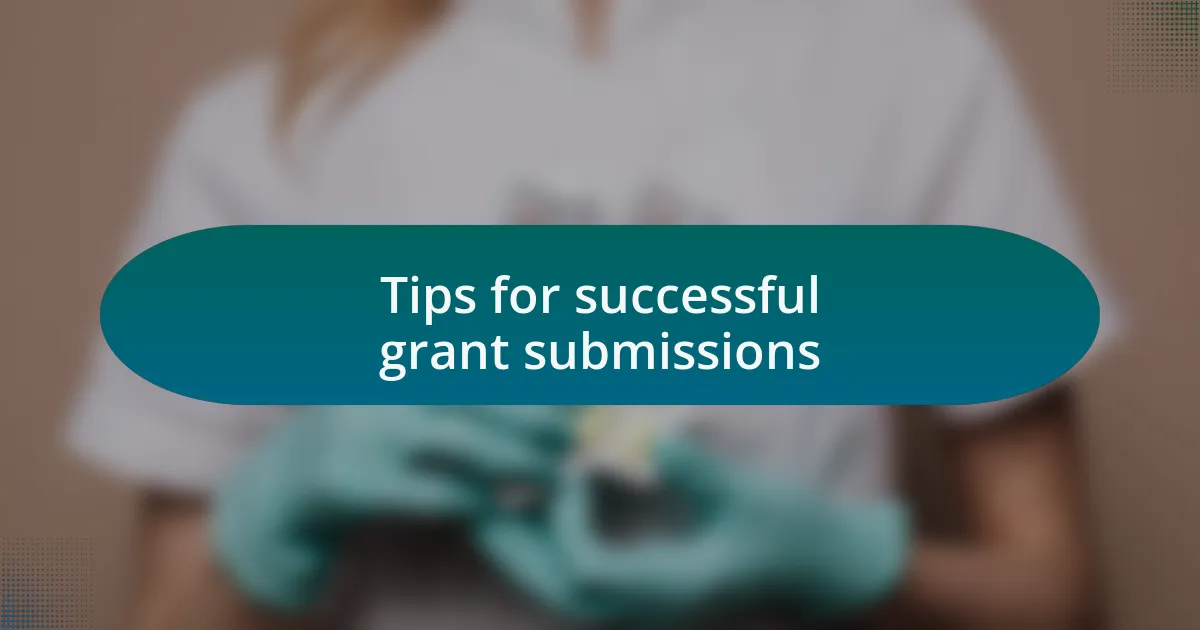Key takeaways:
- Understanding grant writing involves key components: objectives, methodologies, budgets, and aligning proposals with funding agency priorities.
- Grants validate research ideas and provide networking opportunities, leading to collaborations and innovations.
- Learning from rejection is vital; focus on effective communication, backing claims with evidence, and adhering to deadlines.
- Successful applications require tailored proposals, clarity in writing, and a strong narrative to engage reviewers.

Understanding grant writing basics
When I first delved into grant writing, the sheer volume of guidelines and requirements felt overwhelming. I remember sitting at my desk, feeling like I was navigating a labyrinth with no clear exit. It wasn’t until I learned that grant writing has distinct components, like objectives, methodologies, and budgets, that I started to find my footing. Understanding these basics can transform the process from daunting to doable.
One critical aspect is tailoring your proposal to fit the funding agency’s priorities. Early on, I made the mistake of submitting a one-size-fits-all proposal, only to receive a polite rejection. That experience taught me the importance of alignment. How well do your project goals resonate with the funder’s mission? This alignment not only increases your chances of success but shows that you’ve taken the time to do your homework.
Another element I found crucial is clarity. I once tried to impress with elaborate jargon, but soon realized that simplicity is more powerful. Readers, including grant reviewers, often appreciate clear, straightforward language that conveys passion and precision. Have you considered how your message might get lost in technical terms? My journey in grant writing showed me that straightforward stories can often capture the heart of your project just as effectively, if not more so.

Importance of grants in research
When it comes to scientific research, grants are often the lifeblood that fuels innovation. I recall a project proposal that was entirely dependent on grant funding; without it, we couldn’t have undertaken some groundbreaking research. It’s mind-boggling to think how a well-structured grant application can unlock the resources needed for groundbreaking discoveries that otherwise might never see the light of day.
Through my years of experience, I’ve seen firsthand how grants often serve as validation for research ideas. When you receive a grant, it’s like a stamp of approval from the scientific community, signaling that your project carries merit. I vividly remember the excitement I felt when our team secured a significant grant after a rigorous review process. That feeling of validation not only boosted the morale of our research group, but it also attracted further opportunities and collaborators eager to join in on the project.
Additionally, grants provide essential networking opportunities. In my own journey, attending grant-related workshops and conferences has been eye-opening. I’ve had the chance to meet like-minded researchers and mentors who have guided my projects. Isn’t it fascinating how a funding application can lead to lasting professional relationships? These connections often lead to fruitful collaborations, paving the way for future innovations and shared discoveries.

Lessons learned from unsuccessful applications
In my journey through grant writing, I found that rejection often teaches more than acceptance. For instance, I once poured my heart into a grant application only to receive feedback indicating that our hypothesis lacked clarity. Reflecting on this, I realized that effective communication is crucial; if the reviewers can’t grasp your vision, they won’t support it.
One sobering lesson came when a well-rounded application I submitted was turned down due to a lack of preliminary data. It struck me then how important it is to substantiate your claims with evidence. Now, I always make sure to back up my proposals with preliminary results or pilot studies. That experience left me thinking: how can a proposal feel complete without concrete data to support it?
Finally, I’ve learned that timing matters just as much as the content. After missing a key submission deadline once, I faced the consequences of not planning ahead. It was a stark reminder of how life’s unpredictability can ace even the best ideas out of contention. From that moment, I ensure to set internal deadlines ahead of the actual ones. Doesn’t it make you wonder how many projects remain unrealized simply because of poor timing?

Tips for successful grant submissions
One of my key tips for successful grant submissions is to tailor each application to the specific funding agency. I remember a time when I reused a proposal with minimal changes, thinking that my research was universally appealing. It wasn’t until I received feedback highlighting a mismatch with the funder’s mission that I understood the importance of making each application resonate with their values and priorities. Have you ever considered how much deeper your connection with the reviewers could be if you address their unique focus areas?
Another crucial aspect I’ve discovered is the importance of clarity and conciseness in writing. I once submitted a lengthy proposal packed with technical jargon, only to realize that I had lost the reviewers in the details. This experience taught me that complex ideas should be presented simply. The more accessible your writing is, the more likely it is to grab attention. Can you recall a time when you struggled to follow a dense document? For reviewers, clarity can be the difference between an engaged reader and one who’s ready to move on.
Finally, don’t underestimate the power of a strong narrative in your application. I vividly recall a colleague who interwove personal stories and real-world implications into their grant proposal. This approach made their research feel alive and relatable, and it truly captivated the reviewers. I’ve since adopted a narrative style to give my applications a human touch, transforming data into compelling stories. How do you think your research narrative could enhance your proposals?